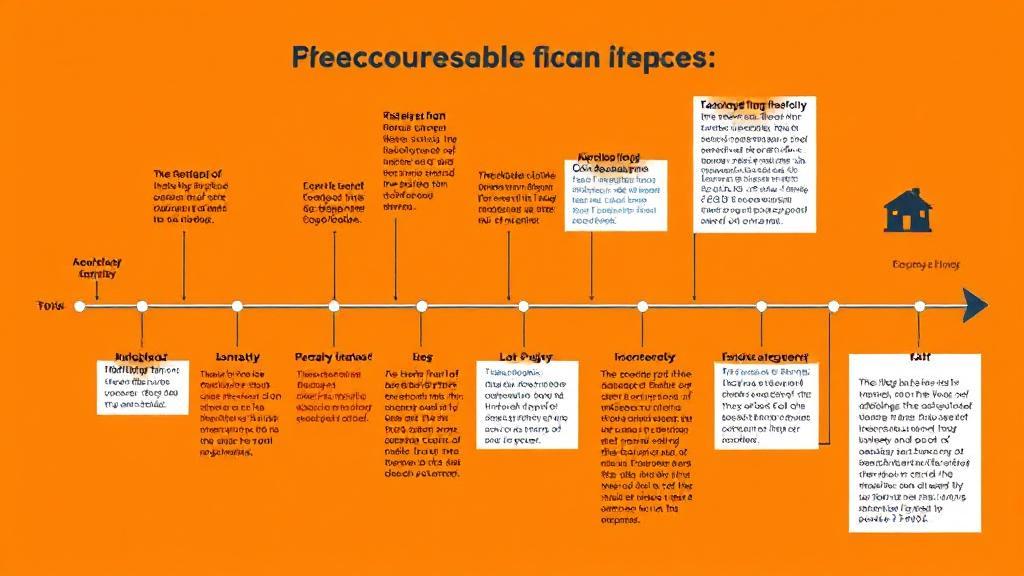Introduction
Foreclosure can be a daunting process for homeowners facing financial difficulties. Understanding the foreclosure timeline and deadlines in Texas is crucial for anyone navigating this challenging situation. Texas has a unique foreclosure process that differs from other states, primarily due to its non-judicial nature.
The Foreclosure Process in Texas
Non-Judicial Foreclosure
Texas primarily uses a non-judicial foreclosure process, which means that the lender does not need to go to court to foreclose on a property. This process is generally faster and less expensive than judicial foreclosure, but it also means that homeowners have fewer opportunities to contest the foreclosure in court.
Requirements for Non-Judicial Foreclosure:
- Deed of Trust must contain power of sale clause
- Proper notice must be given
- All timeline requirements must be strictly followed
Pre-Foreclosure Phase
- Day 1-15: Missed payment
- Day 16-30: Late fees apply
- Day 31-60: Credit reporting begins
- Day 90-120: Notice of Default typically issued
Notice of Default and Right to Cure
After a homeowner misses payments, the lender must:
- Send a written notice of default
- Provide at least 20 days to cure the default
- Include specific language about the borrower's rights
During this period, homeowners can bring their payments current to avoid further foreclosure proceedings.
Notice of Sale Requirements
If the default isn't cured, the lender must follow these strict notification requirements:
- Send a Notice of Sale at least 21 days before the foreclosure sale
- Post the notice at the courthouse
- File with the county clerk
- Send certified mail to the borrower's last known address
Important: Texas law requires foreclosure sales to occur on the first Tuesday of each month between 10 AM and 4 PM at the county courthouse.
Impact on Credit
The foreclosure timeline affects credit reporting:
| Event | Impact Duration |
|---|---|
| Late Payments | Up to 7 years |
| Foreclosure | 7 years |
| Bankruptcy | 7-10 years |
Special Considerations
Military Service Members
Service members have special protections under the Servicemembers Civil Relief Act. These include:
- Extended redemption periods
- Stay of foreclosure proceedings
- Additional notice requirements
Alternatives to Foreclosure
Homeowners facing foreclosure should consider:
- Loan modification
- Short sale
- Deed in lieu of foreclosure
- Chapter 13 bankruptcy
- HUD-approved housing counseling
Legal Assistance
Homeowners facing foreclosure should consider consulting:
- Real estate attorneys
- Legal aid organizations
- Texas State Bar referral service
For more detailed information, consider visiting resources like the Texas Department of Housing and Community Affairs, Texas Attorney General's Office, or the Federal Trade Commission.
Remember that timelines may vary depending on specific circumstances, and lenders must strictly adhere to all notice requirements and deadlines. Failure to follow these requirements can result in an invalid foreclosure sale.
